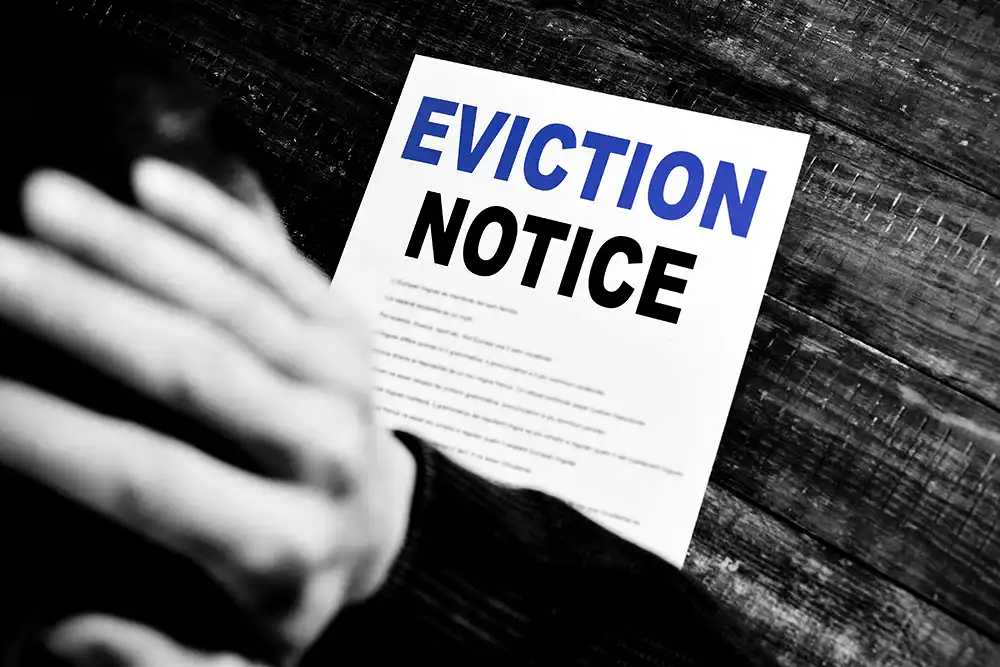Are you a tenant that is currently being wrongfully evicted from your home or business? Wrongful eviction cases can be difficult to fight on your own. Working with an eviction attorney can help you to navigate your illegal eviction and get justice from your landlord as a tenant.
In Texas, landlords can evict tenants for a variety of legal reasons. Here are some of the most common reasons for eviction under Texas law:
Failure to Pay Rent
If a tenant fails to pay rent when it is due, the landlord can initiate eviction proceedings. In many cases, landlords and leasing companies provide tenants with a grace period in which they are still able to pay their rent late, with or without an additional fee. Check your lease to know the specific details surrounding late rent.
Violation of Lease Terms
If a tenant violates the terms of the lease agreement, such as by damaging the property or engaging in illegal activity, the landlord can seek to evict the tenant. Your tenant will need to be able to prove the claim they are making against you in order for this to be valid.
Holdover Tenancy
If a tenant remains in the rental unit after the lease term has expired, the landlord can seek to evict the tenant. Make sure you are knowledgeable about the terms of your lease, when it ends, and if you will receive an automatic lease renewal if you do not communicate with your leasing manager.
Breach of Contract
If a tenant breaches a contractual obligation, such as by subletting the property without permission or failing to give proper notice before moving out, the landlord can initiate eviction proceedings. They will need to have sufficient evidence against you in order for this to be a legal reason to evict you.
Criminal Activity
If a tenant engages in criminal activity on the rental property, the landlord can seek to evict the tenant. If your landlord or leasing company are claiming you have engaged in illegal activity but have no evidence, reach out to an attorney right away.
Nuisance
If a tenant creates a nuisance that disturbs the peace and quiet of other residents, the landlord can seek to evict the tenant. These problems will have to be within reason for someone to be evicted. Landlords and leasing companies will often claim a tenant is a nuisance as a way to evict because they simply do not want them living there anymore. Contact our law firm today to learn more about how you can protect yourself as a tenant.
Failure to vacate after notice
If a tenant fails to vacate the rental unit after receiving a notice to vacate from the landlord, the landlord can initiate eviction proceedings.
Evictions Occur When a Landlord Files and Eviction Lawsuit
It is important to note that landlords must follow proper legal procedures when seeking to evict a tenant in Texas, and tenants have certain rights and protections under the law. If you are a tenant facing eviction, you may want to consult with an attorney or seek legal aid to understand your rights and options.
The Eviction Process
Taken from the Texas State Law Library: Eviction proceedings do not mean that a tenant will immediately be removed from their home. There are many steps in the eviction process that each take a certain amount of time. Until a writ of possession is issued, the tenant can remain in their home.
- Step 1: Written Notice to Vacate. Unless the lease agreement says otherwise, the landlord must give the tenant at least 3 days to move out. They cannot file an eviction suit before they give this notice in writing. The federal CARES Act requires a 30 day notice in certain evictions where the property participates in certain federal programs or the property owner has a federally-backed mortgage.
- Step 2: Filing of Eviction Suit. The eviction hearing cannot take place for at least 10 days after the petition is filed.
- Step 3: Judgment. Once a judgment has been issued, no further action can take place for 5 days. This time gives the parties the opportunity to appeal.
- Step 4 (optional): Appeal. If the tenant files an appeal, the hearing cannot take place for at least 8 days.
- Step 5: Writ of Possession. Once there is a final judgment, the landlord can ask the judge for a writ of possession. The constable must post a 24 hour notice before “executing the writ” and removing the tenant’s property from the rental.
Free Initial Consultation With Experienced Attorney
Attorney Fuller is a seasoned attorney with nearly three decades of experience representing a wide range of clients. This includes individuals who have suffered an injury due to another’s actions, individuals facing criminal charges, those who have been arrested for DWI, individuals who have found themselves in a civil litigation dispute, and those looking for legal guidance in business.
After filling out a client intake form, Attorney Lanease D. Fuller will take appropriate action in your case to help you get the results you are looking for. This includes but not limited to gathering evidence, going to trial, and earning a settlement that is appropriate for your specific situation. Reach out to us today to take the first step towards settling your case.
LANEASE D. FULLER LAW
4615 S. Frwy St. 820
Houston, TX 77051
713-439-7400
View our Google Listing


